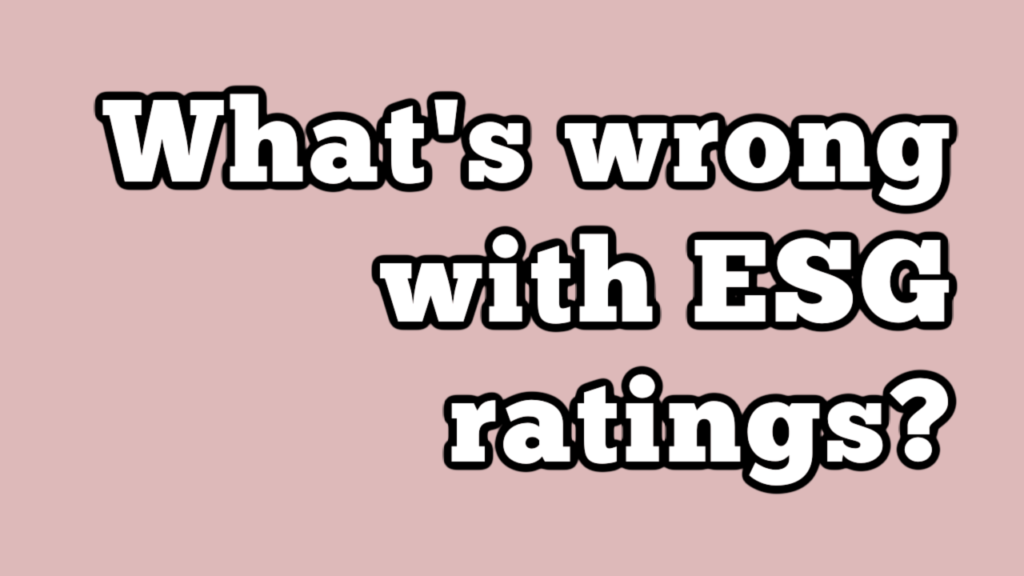What’s wrong with ESG ratings?

Here’s the intro from this blog by Cydney Posner:
About a year ago, the Brookings Institution held a panel discussion regarding the role that the SEC should play in ESG investing and invited SEC Commissioner Hester Peirce to speak at the panel. It’s well known, of course, that she is not exactly a fangirl of ESG in any of its manifestations, and she came prepared to engage, armed with a voluminous speech consisting of 10 theses, footnoted to the hilt.
One of her theses was that figuring out what “good” means in the context of ESG is very subjective—that’s why, she said, there’s a lot of debate over best ESG practices and that’s especially why ESG ratings firms are so inconsistent in their results. (See this PubCo post.) There may be even more to it than that.
This new paper, “ESG ratings—a compass without direction,” from the Rock Center for Corporate Governance at Stanford University, looks at ESG ratings and examines issues about their reliability. The authors conclude that, “while ESG ratings providers may convey important insights into the nonfinancial impact of companies, significant shortcomings exist in their objectives, methodologies, and incentives which detract from the informativeness of their assessments.”
